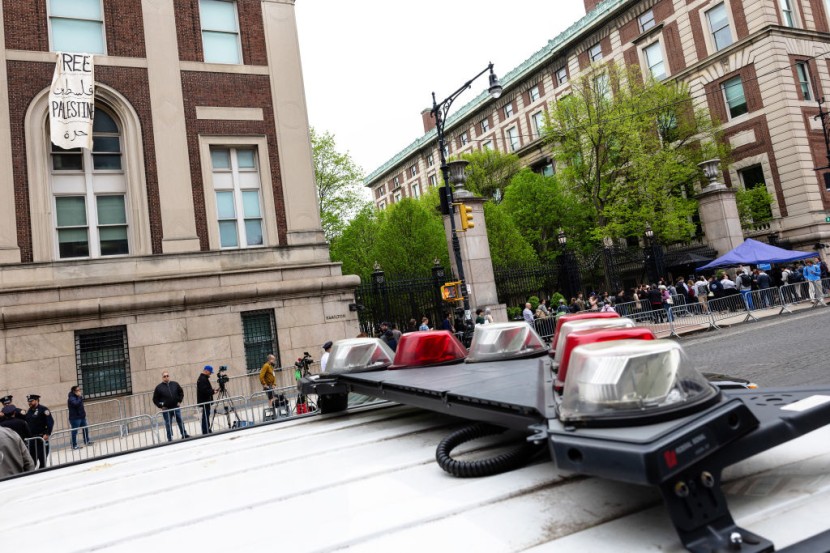
Columbia threatened to expel the pro-Palestine student actvists barricaded inside the university's Hamilton Hall, on Tuesday afternoon, less than 24 hours after the students first siezed the building in response to the administration's demand that protestors clear the Gaza Solidarity Encampment.
"We regret that protestors have chosen to escalate the situation through their actions," Columbia spokesperson Ben Chang said in a statement. "Our top priority is restoring safety and order to our campus."
Discord between the Columbia student activists and the university administration has raged for two weeks - since students first erected the Gaza Solidarity Encampment on the university grounds. The student protestors are calling for divestment from Israel, transparency into the college's finances and amnesty for all students involved in the activist groups.
The Columbia campus - which was already restricted to people with university IDs and others let on campus on a case-by-case basis - is now solely open to students who reside in one of the seven on-campus dorms and staff members performing essential functions. The only point of entry on campus is the 116th Street and Amsterdam gate - while other gates will remain locked, according to the Columbia website.
"Protesters have chosen to escalate to an untenable situation-vandalizing property, breaking doors and windows, and blockading entrances-and we are following through with the consequences we outlined yesterday," Chang wrote.
The student activist group Columbia University Apartheid Divest (CUAD) characterized the administration's actions as a "siege on its students," in a Tuesday Instagram post, that called on students to surround Hamilton Hall.
"Students in the encampment have no access to bathrooms, food or water. The school is arbitraily suspending students who were uninvolved simply for accessing their own library last night," the organization wrote. "Columbia is a repressive police state that funds genocide. This crackdown is abhorrent."
The Columbia administration claimed in their statement that the primary issue with the student movement was "the actions of the protestors, not their cause."
"Disruptions on campus have created a threatening environment for many of our Jewish students and faculty and a noisy distraction that interferes with teaching, learning, and preparing for final exams, and contributes to a hostile environment in violation of Title VI," Chang wrote.
The politics of the encampment have been subject to intense scrutiny from the beginning - there were Jewish activists involved in occupying the lawn and participating in associated activist groups. Students and faculty members even celebrated a Passover Seder inside the encampment.
Some, however, allege that the activism has led to a spike in on-campus antisemitism - with at least one rabbi associated with the university urging Jewish students to return home. Columbia Students for Justice in Palestine and its members have made repeated public statements asserting that Jewish students are a welcome part of their movement and that their issues are with the Israeli government and the university's administration.
"This is part of the continuing harassment, violence and bad-faith behaviors carried out by Columbia University administration," CUAD wrote in response to the expulsion threats. "Rather than focusing on the demands of CUAD to divest from genocide, the administration has targeted the students who have put all on the line for Palestine."








